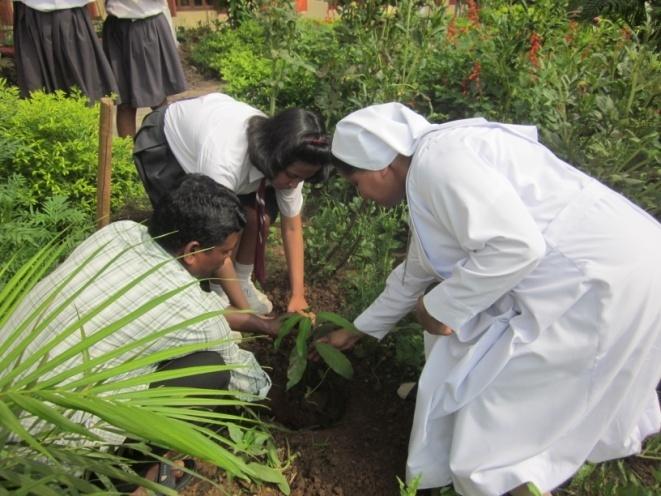The Assam and Arunachal Pradesh State Office (AAPSO) of WWF-India, planted tree saplings in several schools of Guwahati and other districts of Assam on the occasion of the World Environment Day (WED) on Thursday.
This was not only an attempt to create awareness regarding the importance of trees in the urban ecosystem where green cover is fast depleting but also to educate students about the adverse effects of global warming and what can be done to reduce it. The climate in Guwahati and Assam is an example of the devastation that global warming may unleash in the not too distant a future.
The Department of Forests, Government of Assam provided free saplings to the Assam and Arunachal Pradesh State Office (AAPSO) of WWF-India on the occasion.
WWF-India distributed saplings mainly of the native fruit bearing variety along with medicinal and other ornamental trees which provide considerable shade. Fruit bearing trees were planted for birds in the vicinity of the threatened Ramsar site- Deepor Beel, Pobitora WLS and Chandubi in the outskirts of the capital.
Dellhi Public School (Guwahati), Maharishi Vidya Mandir Barsajai, Royal Global School, Sanskriti Gurukul, Maria’s Public School, Saint Francis De Sales, Sarla Birla Gyan Jyoti, Miles Bronson Residential School, Bhaskar Bidyapith H S School, Gopal Boro H S School, St. Stephen’s School, Holy Child School and St. Mary’s School Maligaon participated in the plantation drive by planting trees in their school campuses.
On May 29WWF-India also supported a plantation drive at the Kendriya Vidyalaya NCC Camp (Narengi) wherein 300 cadets participated.
While requesting people to adopt a plant today and contribute towards a healthy planet tomorrow, Mrs. Archita Baruah Bhattacharyya, Programme Officer WWF-India said that planting a tree is an easy and efficient way to beautify our surroundings and to get closer to nature. Trees not only enrich the environment but also our lives.
WWF-India initiated the ‘Adopt a Plant’ campaign with a mission to promote tree plantation among the masses and to provide an opportunity to nurture a tree to life. WWF-India provides free saplings with a commitment in return to nurture the saplings into a tree.




Add new comment